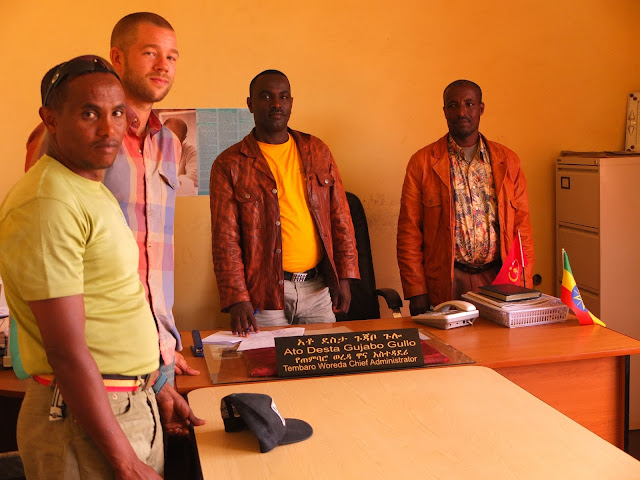Ive been spending an inordinate amount of time in Addis over the last month. Field projects are taking some time to get going, so Im staying busy with computer work and meetings.... Not exactly blog friendly material. Thankfully a long time friend from Minneapolis made her way out to assist ER with a couple projects in Kembata-Tembaro. Maddy Ruegg is a certified nutritionist, experienced urban and rural gardener, as well as a world travler with a pension for finding substance wherever she temporarily settles. Maddy's also a welcomed solid addition to the Cien and Lolo fam. Everyone at ER is happy to
have her out in Ethiopia til the end of February.
have her out in Ethiopia til the end of February.
Addis is currently suffering through a simultaneous city wide train track construction project. Roads are tore up as well as the lines of water and electricity that flow above and below them. Residents of the city have seen their daily commute triple in length and double in cost due to the ridiculous construction planning. While at home, folks that live outside of the wealthy corners of the city are regularly without
water for days and even weeks at a time. Unfortunately, Im one of those have-nots. Currently we're on three weeks of intermittent water and electrical supply (water, without warning, comes on for 2 hours at a time, and even better, usually in the middle of the night). All that living in the country side sure does a solid job prepping ya for hauling water from blocks a way and charging cells off of solar
batteries.
Anyone that follows these posts already has an idea about how I and company stay sane. Get on out to the surrounding mountains and go for a morning to early evening hike of course. Camping would be better if it wasn't for the nocturnal carnivorous wildlife. Oh well, we make
do.
























































